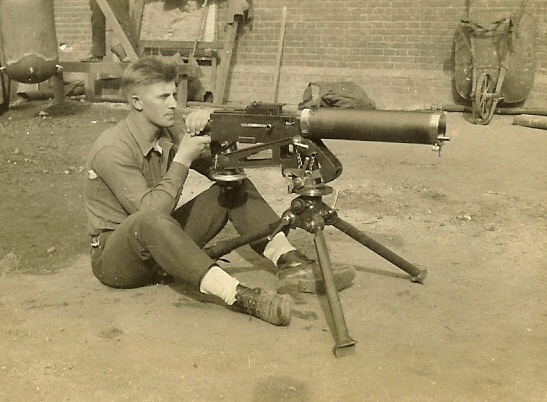
Pvt Fred Hartness, Tientsin China
When Marine Commandant General David Shoup was just beginning his career as a Marine officer, he was selected to join Smedley Butler’s Third Brigade which was in the process of being quickly assembled to support the Fourth Marines in Shanghai. On April 1st 1927, Shoup was abruptly pulled out of Basic School in Philadelphia and sent down to the Norfolk Navy Yard, to join other East Coast Marines who were preparing to follow General Butler to China. Many years later, General Shoup wrote a lively account of his China experience in a small book entitled: “The Marines in China 1927-1928: The China Expedition which turned out to be The China Exhibition.” Sadly, the book did not include any photos to support his colorful narrative. Fortunately, Pvt Fred Hartness, while at Marine Barracks, Hampton Roads, was tapped to join Shoup in going to China. For a time both men served together in the 15th Machine Gun Company. Hartness, armed with a small camera, photographed a number of events that Shoup witnessed during the early part of his trip. As a result it is now possible to merge Shoup’s words with Hartness’s images to give the viewer a picture of what the Marines experienced on this portion of their China cruise. Unlike the General, Hartness stayed with the 3rd Brigade through its entire life before transferring to join the Fourth Marines in Shanghai in January 1929.
These first images show Hartness’s company loading their sea bags on to trucks before embarking on barges that would take them down to the Norfolk Navy Yard where they would join Lt Shoup and the others of his battalion for a cross country train trip to San Diego. One interesting note in Shoup’s book was his description of a near fatal train accident the battalion almost experienced, stemming from the great Mississippi Flood of 1927. Thanks to Pvt Hartness, we can see photographs that match Shoup’s description of the near tragic event. Only delayed by the flood a short period, the troop train reached San Diego and the men soon boarded the Dollar Line Steamer President Grant for the Philippines. Following a month long stay in the Philippines these Marines again embarked on the President Grant, but this time for China.

Loading sea bags at Hampton Roads. Hartness is just below the writing on the far right.
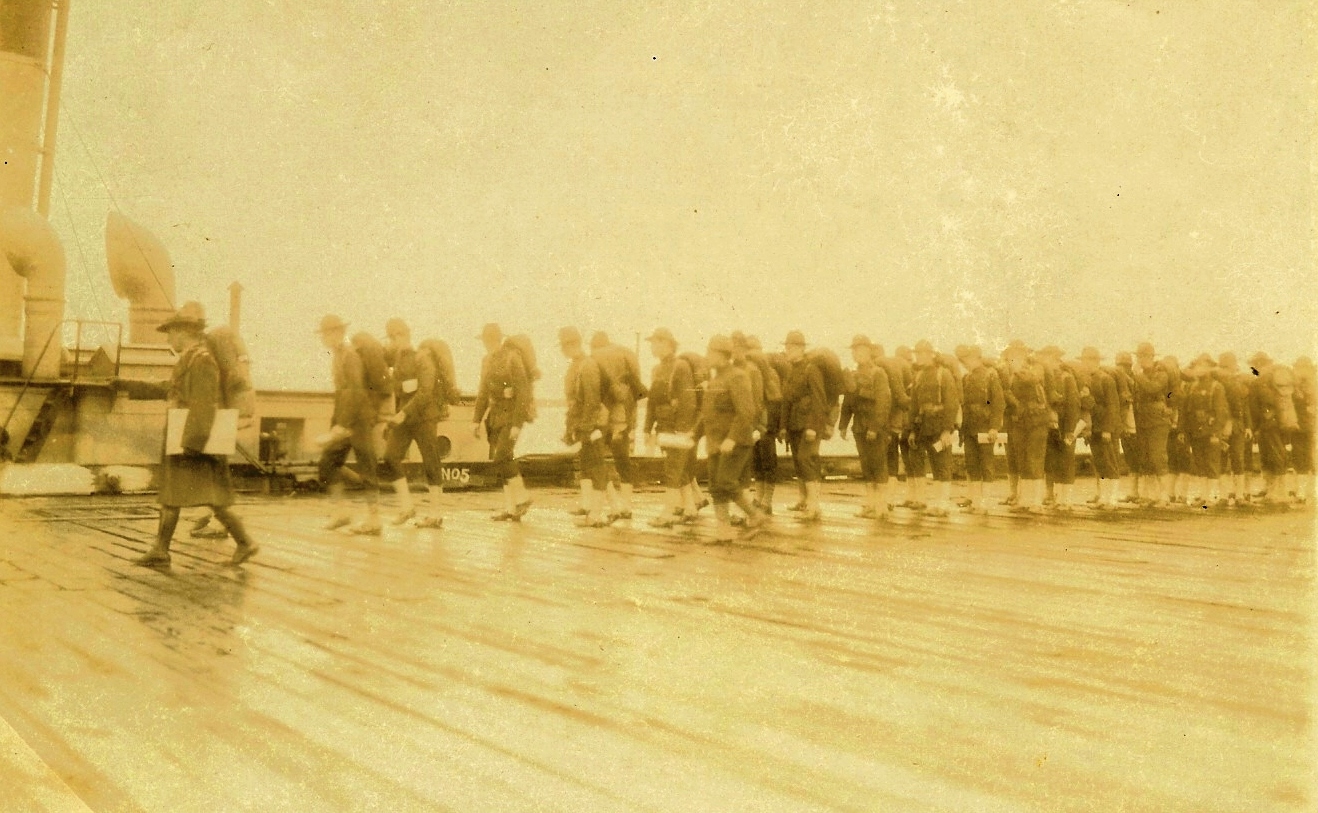
Moving to the barges.
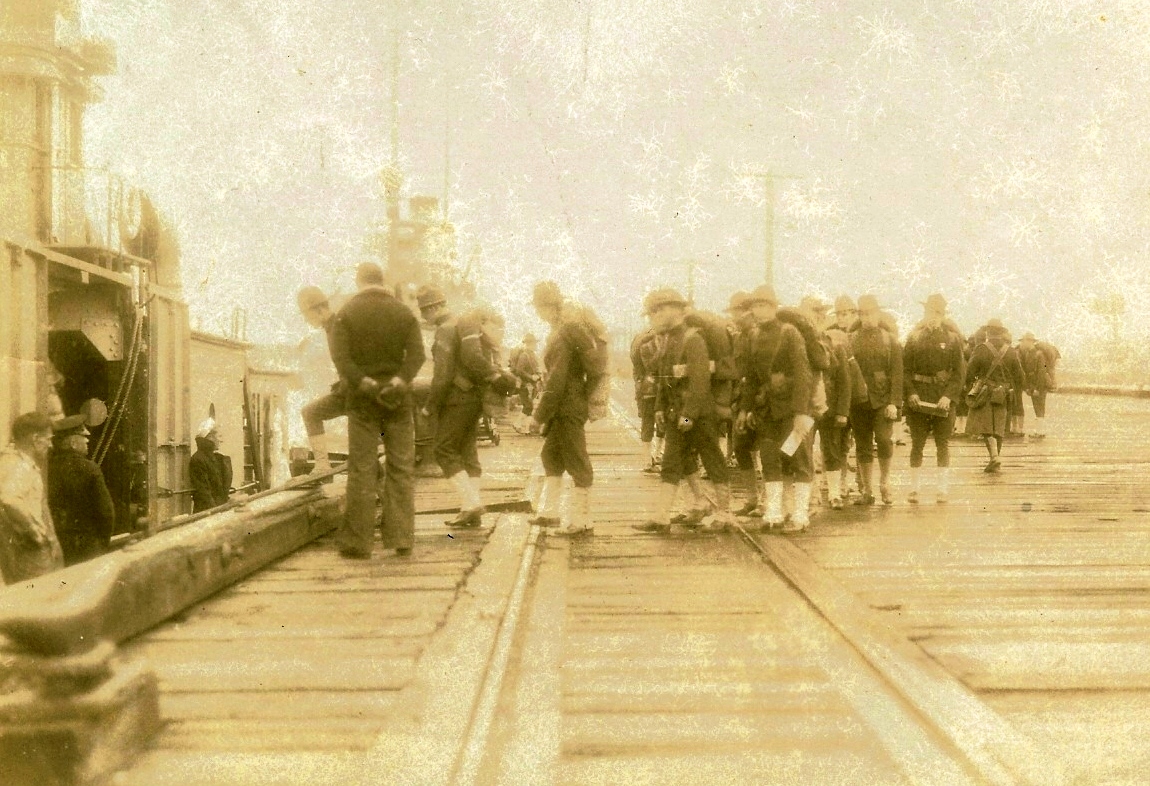
“We embarked on the tug amid the usual cheers and fond adieus. We had a rather cool trip [made during a cold drizzle]of some three or four hours to Newport News, where the train was awaiting us and the engine was snorting at being restrained.”
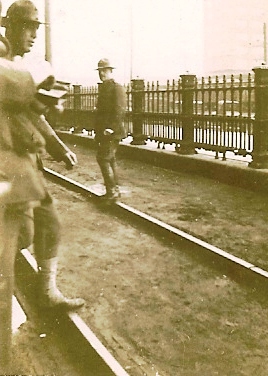
Louisville
Louisville: “We arrived in Louisville about 10:00 A.M. and ran around the station for ten minutes for some much-needed exercise. By this time the train was decorated with chalk, so you didn’t need to see a Marine to know the train was full of them. You know what the trains and autos look like that carries the football rooters. Well we were going into a bigger game than that, and everything read accordingly.”
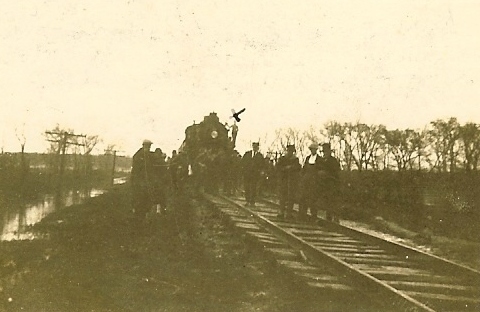
The Mississippi Flood. “Suddenly there were several violent jolts. I was thrown from my bed onto the floor. I immediately ran to the end of the coach. Although there was only 40 feet the howling and shrieking of the brakes and slipping wheels and the bumping of coaches in an attempt to buckle made those seconds seem long indeed. The first thing I saw was the form of a man rolling in the cinders, then another and another…..This was the engineer, the others had been the fireman and brakeman. And when an engineer jumps, there must be a catastrophe very, very close.”
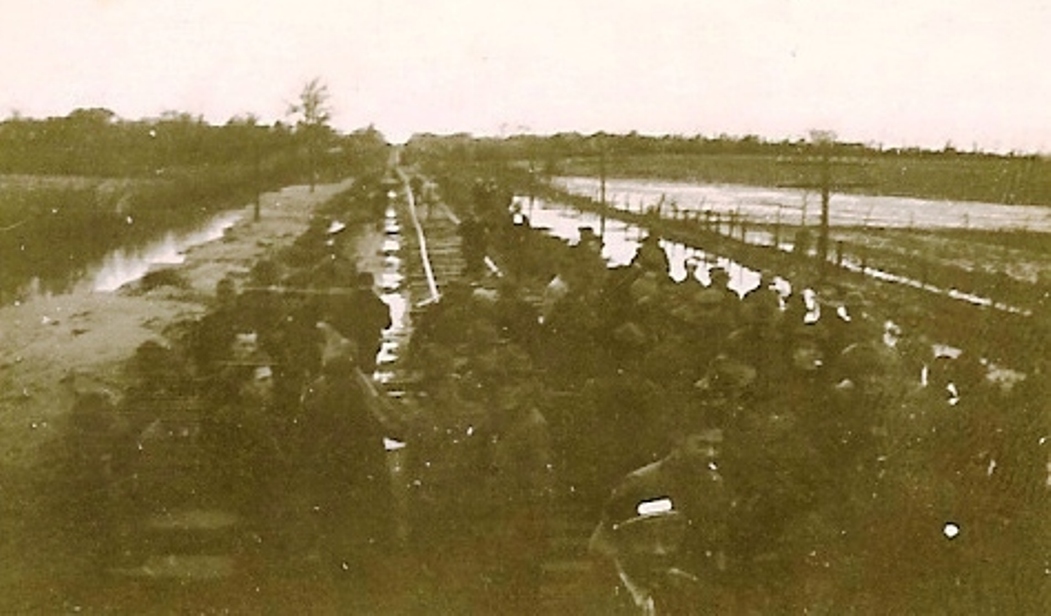
“We had just passed over approximately 150 yards of track which had the roadbed washed from beneath it to depths ranging from 4 inches to 2 feet. Railroad officials said that a speed of 75 miles per hours was necessary to have crossed this without turning over…..Scores would have died. As I walked forward beside the train, I realized how fortunate we had been. Upon reaching the fore part of the engine, I gasped at the sight which met my eyes. Fifty yards from the point where the pony trucks of the engine had stopped, there was no fill, and the wheels had stopped there was no track at all.”
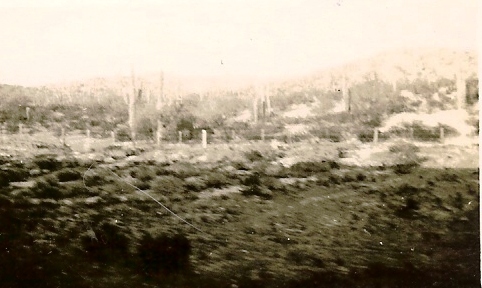
New Mexico: "For hundreds of miles, we seemed to be traveling through the heart of “God’s forgotten country.” Sage brush and briars and briars and sagebrush, and cactus made up the only visible vegetation.”

Marine Barracks San Diego.
San Diego: “We arrived in San Diego about 4 P.M. As was the case when we left Norfolk, we were cheered by a cold, drizzling rain. Within an hour or so, we reached our destination and were disembarking in the rear of the great new barracks at the Marine base in San Diego….Then came the scramble to get quartered, get bunks and mattresses and being shaken down.”
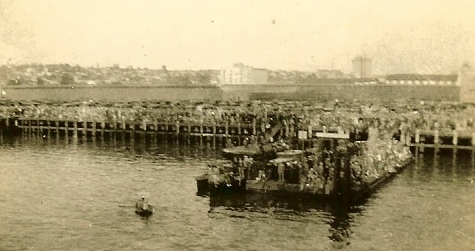
Leaving San Diego
Leaving San Diego. “As soon as the gangway was down, the enormous crowd which had gathered from the city and surrounding towns and cities surged forward to the edge of the pier. With the jostling, I was sure someone was due for a wetting, and only last night was Saturday night. How sad this would have been. But as all things we look and hope for, it didn’t happen….All lines were away and the ship was nosing away from the pier, but we still had thousands of strings of confetti connecting us to the U.S.A."
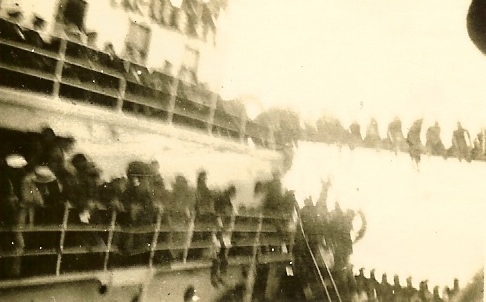
At Sea. Watching a boxing match.

The Dollar Line Steamer SS President Grant. “We had noticed a few rocky islands during the day, and that evening some time (May 4), we were to arrive at Olongapo. As is customary with Dollar ships, we had a few added attractions during the last dinner. The dining room was decorated well, and flags of all nations were hung from lines across the dining room. During dinner the rumor had it we were nearing Grande Island, a small island at the mouth of Subic Bay. And soon after dinner, we passed this and were insight of the lights on the dock at Olongapo…It was not long until the big ship was near the dock, which by now had searchlights playing on it. A couple of lines were cast out and as the ship slowly moved toward the dock, the ship’s captain rather happily said, "Unload your Marines.”
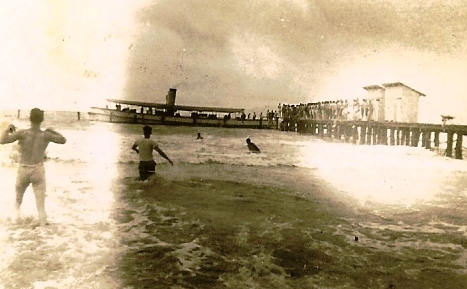
Olongapo May 27, 1927
The Philippines. While attempting to deliver food and supplies to Shoup’s company at the Macariga Range from a small tug, the young Lieutenant found himself caught in a typhoon: “All the canned goods were thrown overboard. Here and there, men were struggling through the waters with a case of canned food. For some unknown reason, a case of jam and one 5-pound tin of butter sank soon as they were thrown in the water and were not recovered. A quarter of the beef provided too great a strain on our conveyance and dropped into the sea….A Marine dove and hooked a hook into the meat and it was rescued…I fear there was hardly a total of 50 pounds of 500 which reached the refrigerator. But from the expressions, they were darned glad to have the food…”
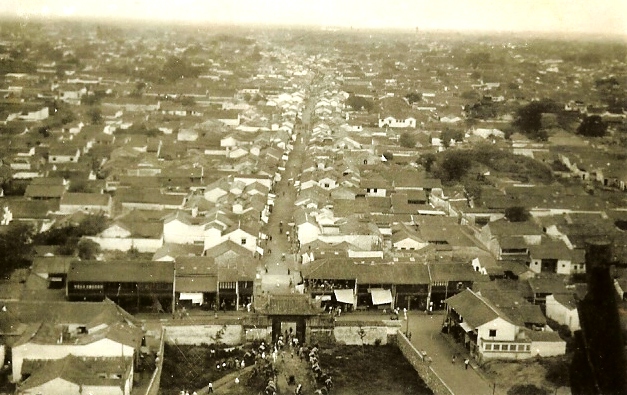
Shanghai: Upon arriving first in Shanghai and then Tientsin, Shoup and Hartness’s stories diverge. The future Commandant explains conditions in China from an officer’s perspective, while the young Pvt Hartness fills is photo album with images of his fellow Marines at training and liberty, as well as some of the less glamorous places not normally visited by officers.